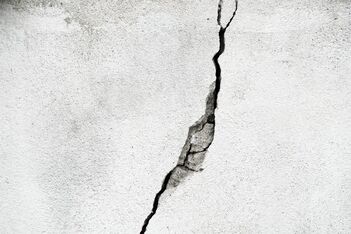
- Administrators are scared of litigation and sunshine laws. I understand. It's a real concern. We live in a society that is filled with the threat of lawsuit, and the education system is caught in the middle. Sometimes that is warranted, for sure, but for a district to avoid true methods and creative lessons by using this as an excuse is a cop-out. To restrain teachers with a blanket rule that ties their hands is a travesty. How long will we operate in such a frightened system?
- Teachers at retirement age do not stick around any longer than they have to. Why would we? If we are constantly flooded with restrictions and strict timelines, if we are all the time trying to stay ahead of the wave, and we are not allowed to make professional decisions in regards to how we approach teaching and which methods to tout for our students, there are plenty of places we could still operate while having an impact on education. When a teacher sits at the end of a career, often he is only working for a matter of a couple hundred dollars a month, and it's just not worth the stress and headaches.
- Observations become punitive. I've heard of observers who invade classrooms unannounced, and I think that's terrific; in fact, I don't believe any observation should be scheduled. However, if a class is engaged in activity, that observer must respect the moment and not interrupt to insist that a teacher conduct a formal teacher-led lesson. Furthermore, observations should intend to be constructive and not punitive. At no time should they be viewed as times to catch teachers in the act of neglecting their duties. Observations of teachers in their classrooms should always seek to help the teachers improve. If there are problems or issues that are not improving, then there may be reason to enact a new plan or do some troubleshooting. I can't stand that administrators slip in for the simple purpose of ticking some boxes for their district requirements.
- Test scores become the goal. It is often pointed out that test scores in the United States are low in contrast to the test scores of other countries on the planet. On the other hand, the United States is a leading superpower that develops a great deal of the products and systems that those other countries use or would like to use. We are leaders in research and development - in spite of our kids' test scores. How is this possible? Could it be that we are measuring success inaccurately? Are our current testing methods giving us the wrong results? Those tests tend to drive instruction, but I wonder if they should be the only thing we look at to determine the success of a school, a grade level, or a single classroom. Where is the joy of learning assessed? Where is the consideration of school culture? If students and teachers do not feel safe or inspired to do better, there is no reason to look at their spring test scores. If they are miserable and nervous, there will be no true learning.
- Teachers go shallow (skim the surface) to keep up. Finally (for this installment), there is just too much emphasis on the amount of material that teachers must cover in the year. I can write about this over and over, but until we figure it out, teachers are just going to quickly skim each of the standards in order to fit them all in. We must be allowed to cover things in a deeper manner in order to ground students in the material. Otherwise, we will simply have to cover the same skills over and over. We must establish firmer foundations for our students, and firmer foundations are only laid when deeper holes are dug.
I hope that someday we stop repeating the cycles that have proven to fail our pupils. When do educators finally begin to learn from history and correct the mistakes of those who have come before us? There is no reason we cannot tweak things to make them constantly improve rather than all the time throw out the babies with their bathwater!







































